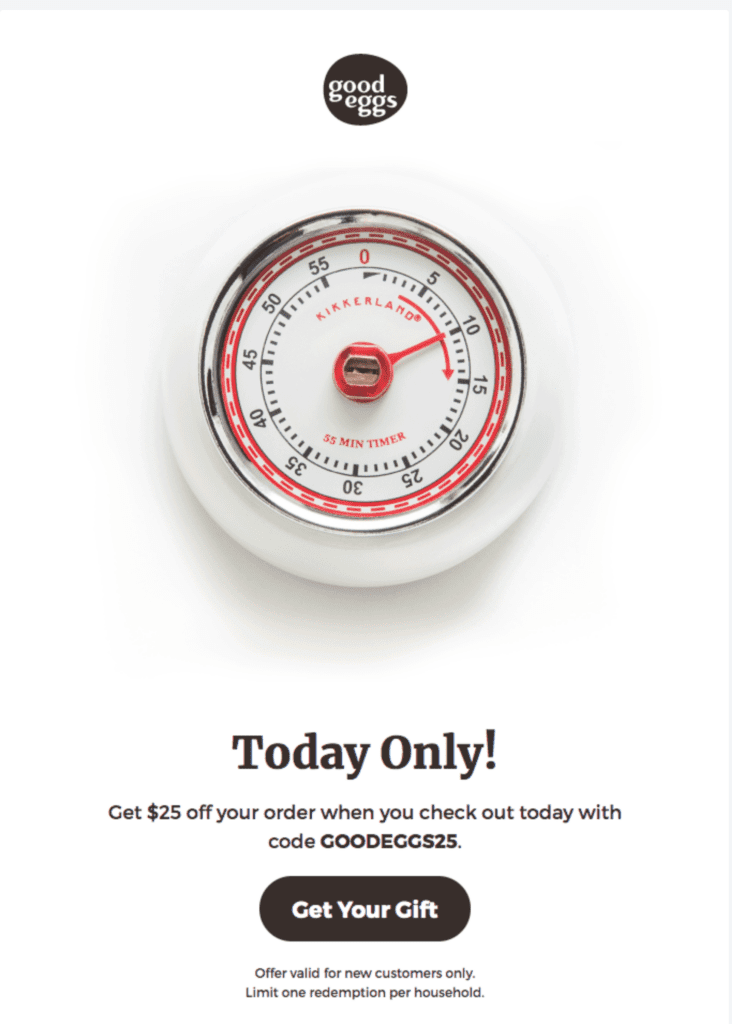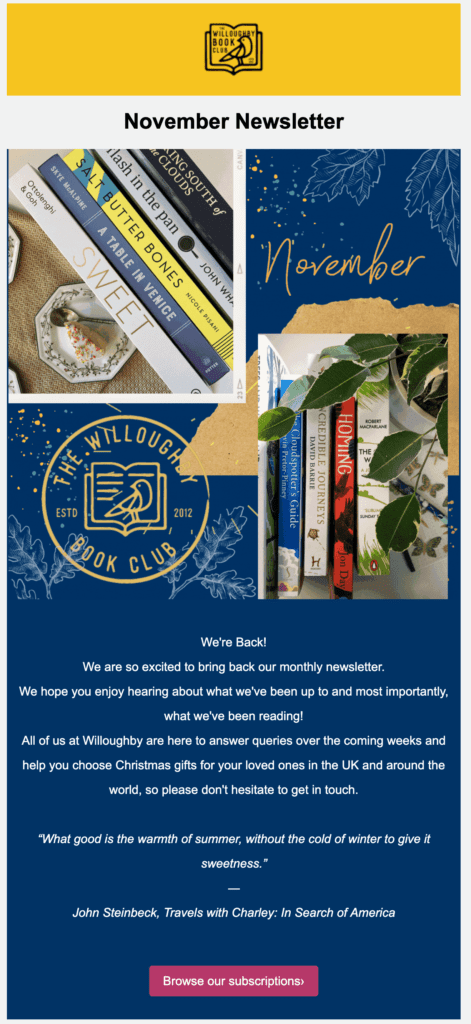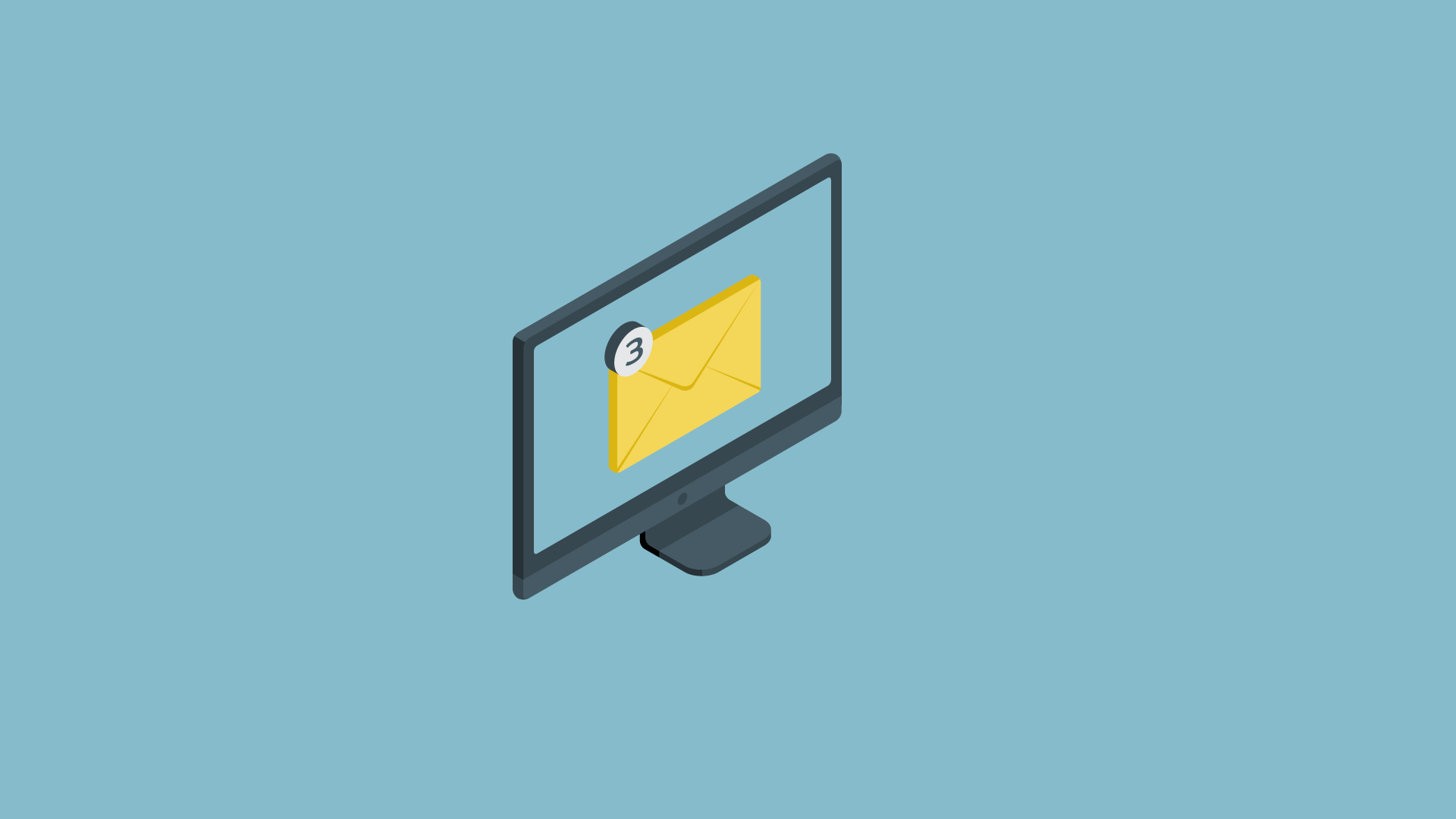Are you looking to drive more traffic to your website or bolster sales, but aren't sure how? Inbound marketing through email marketing might be an effective solution. But what is email marketing and how can it help you achieve your business goals?
Email marketing, increasingly popular among businesses, has been around since the earliest days of the internet. It lies at the intersection of technology and customer service, allowing companies to communicate with customers in new ways. From traditional newsletters to digital campaigns that tailor messages for every recipient, marketers have a wealth of tools at their disposal.
Inbound marketing through email marketing is an effective way for businesses to stay connected with their customers and drive sales or engagement. To get started with email campaigns, marketers need to understand what e-mail marketing is, what types of emails are available, and what best practices are for crafting engaging emails.
This article will take a closer look at these topics and provide all the information needed to create intelligent email campaigns that drive conversions and increase revenue.
|
Email Marketing Email marketing is the process of targeting your audience and customers through email. |
What Is Email Marketing?
Email marketing is a powerful tool for businesses to connect with their customers and promote their products or services. The key is to strike the right balance between sending informative, valuable content and not overwhelming subscribers with too many emails.
One effective strategy is to segment your email list based on factors such as demographics, purchase history, and interests. This allows you to personalize your messages and provide content that is relevant to each subscriber.
For example, a clothing retailer might send different promotions to men and women or highlight different products based on the subscriber's past purchases.
Another important aspect of email marketing is crafting compelling subject lines and content that will entice subscribers to open and engage with your emails. This can include eye-catching graphics, concise and informative text, and clear calls to action.
It's also important to follow best practices for email marketing, such as making sure your emails are mobile-friendly and including an easy opt-out option for subscribers who no longer wish to receive your messages.
Overall, email marketing can be a highly effective way for businesses to build relationships with their customers and drive sales. However, it's important to approach it strategically and thoughtfully to avoid turning off subscribers with spammy or irrelevant content.
Types of marketing emails
Emails used in marketing can be categorized as promotional, informational, or having a purpose within the customer journey.
Promotional emails
Promotional emails are a key component of any email marketing campaign. They are designed to capture the reader's attention and encourage them to take a specific action. These emails are typically sent to promote special offers, new product releases, and gated content like ebooks and webinars, and to increase brand awareness.
A successful promotional email will have a clear call-to-action (CTA) that tells the reader what specific action they should take. This can be anything from visiting a page on your website to using a coupon code to make a purchase. It's essential to make the CTA prominent and easy to understand, so the reader knows exactly what they need to do.
The frequency of promotional emails will depend on your business's sales and marketing rhythm. During peak sales periods, such as Black Friday or Cyber Monday, you may need to send multiple emails within 24 hours to make the most of the opportunity. However, during slower periods, you may only need to send a few promotional emails over several weeks.
When planning a promotional email campaign, it's important to think about your target audience and their needs. What kind of promotions or offers will they find most appealing? How can you make your email stand out in their inbox? By tailoring your message to your audience and using eye-catching design, you can increase the chances of your promotional emails being successful.
Informational emails
Informational emails are another type of marketing email that serves to educate, inform, and engage your subscribers. This type of email can include newsletters, announcements, and educational content.
Newsletters are a common form of informational emails, sent at regular intervals to maintain consistent touchpoints with subscribers. A newsletter shares news related to your business, including milestones, new product capabilities, or valuable content like case studies. It's an opportunity to share insights, thoughts, tips, or any other information that brings value to your audience.
Announcement emails are another type of informational email that can keep your subscribers informed of company news, such as new product releases, changes to the service, or upcoming events. Email is often the go-to channel for important messages because it's secure, instant, and can match the formal tone of even the most significant announcements.
Educational content is a type of informational email that focuses on teaching your subscribers something new or valuable. This content can take the form of tutorials, how-to guides, or tips and tricks. Providing educational content can position your business as a thought leader in your industry and help build trust and credibility with your audience.
Generally, informational emails are an effective way to keep your subscribers engaged, informed, and interested in your brand. By providing valuable content and relevant information, you can strengthen your relationship with your subscribers and increase the likelihood of conversion in the future.
Re-engagement emails
Re-engagement emails are important in maintaining an active and engaged email list. These emails can be sent to subscribers who haven't opened or clicked on any of your emails in a certain period. Re-engagement emails can also be sent to customers who haven't purchased in a while.
The main goal of re-engagement emails is to remind customers or subscribers about your brand and entice them to take action. The email should offer value to the recipient and provide a clear call to action. For example, you can offer a discount code, invite them to take a survey or provide feedback, or share new and relevant content.
Re-engagement emails can help you improve your email engagement rates, increase sales, and prevent your emails from being marked as spam. It's important to regularly monitor your email list and remove inactive subscribers to maintain a healthy and engaged list.
You can also use HubSpot's email marketing tool and services which offers automation features to help you easily create and send re-engagement emails.
If you need inspiration or ideas for creating effective re-engagement emails, you can refer to this example from Shopify:
Why Email Marketing is Important
Email marketing is a crucial element of any successful inbound marketing strategy. It allows businesses to reach their target audience directly, build relationships with customers, and increase brand awareness.
Emails are like the heartbeat of your business - from order confirmations to newsletters - and we'll help you make them sparkle!
Email marketing helps you achieve three key objectives:
1. Conversions Rates
One of the primary objectives of email marketing is to drive conversions, which means selling your products and services. If you're launching a sale or promotion, email marketing can help you reach out to your subscribers and encourage them to make a purchase.
However, you can further boost your conversion rates by using personalized email marketing techniques. For example, you can offer personalized coupons or special discounts for your subscribers on their birthdays or anniversaries. You can also use welcome emails to provide exclusive offers and discounts to new subscribers. These personalized touches make the recipient feel special and can increase their likelihood of making a purchase.
Another effective technique to boost conversions is through abandoned cart emails. These emails are triggered whenever a visitor adds an item to their shopping cart but doesn't complete the purchase. By sending an email reminder, you can encourage the recipient to return to their cart and complete the purchase. This strategy can help you recover lost sales and increase your overall conversion rate.
2. Brand awareness
Email marketing is a powerful tool for increasing brand awareness. What makes email marketing so effective is that it allows you to reach your target audience directly. It's one-to-one communication at its best, as people don't just let anyone into their inboxes these days. It's a curated space reserved for favorite brands and publications.
Showing up in someone's email inbox can help your brand stay top-of-mind with subscribers. A personalized marketing email is more impactful than a social media post where you can't be sure if someone has seen your message.
With email, you can craft a message that is tailored specifically to your audience, making it more likely that they will engage with your brand and become loyal customers.
Scalability is one of the major benefits of email marketing. This means that emails can be sent to many recipients while remaining cost-effective (compared to other marketing channels).
With email, you can reach a wider audience than you might be able to with traditional advertising methods, such as print or television ads. And because email campaigns can be automated and targeted, you can maximize the impact of your marketing efforts while minimizing your costs.
3. Customer loyalty
Email marketing is a powerful tool to build and maintain customer loyalty. It can be used to nurture leads, drive conversions, facilitate onboarding, and retain customers. By sending personalized and relevant emails, businesses can establish a relationship with their subscribers and keep them engaged with their brands.
One of the most important benefits of email marketing in terms of customer loyalty is its ability to provide a personalized experience for each subscriber. With the help of segmentation and automation, businesses can tailor their email content to the interests and behavior of each customer. This can help to foster a sense of connection and loyalty with the brand.
In addition to personalization, email marketing can also be used to deliver valuable content to subscribers. By offering helpful tips, insights, and resources, businesses can establish themselves as trusted source of information and build credibility with their audience. This can further strengthen the relationship between the brand and its customers.
Another way email marketing drives customer loyalty is by facilitating communication and engagement. Customers appreciate timely and relevant responses to their queries and concerns. By using email to respond to customer inquiries, businesses can demonstrate that they are committed to providing exceptional customer service and building strong relationships with their customers.
Learn more about why email marketing is important.
How Email Marketing Works
Email marketing works by using email to communicate with your target audience and promote your products or services. It involves sending commercial messages to a group of people using email. The messages could include promotional content, company announcements, newsletters, or any other information you want to share with your audience.
One of the key benefits of email marketing is its low cost compared to other marketing channels. It's an affordable way for businesses of all sizes to reach a large number of people. It's also easy to track the performance of your email marketing campaigns, which allows you to make data-driven decisions and optimize your strategy over time.
To get started with email marketing, you need to build an email list. This is a list of people who have given you permission to email them. You can collect email addresses from your website, and visitors, by offering them an incentive, such as a discount or a free resource, in exchange for their contact information.
Once you have a list of subscribers, you can start sending them emails. You can create a variety of email types, including newsletters, promotional emails, transactional emails, and more. The content of your emails will depend on your business goals and the needs and interests of your subscribers.
To increase the effectiveness of your email marketing campaigns, you can use personalization and segmentation. Personalization involves using the subscriber's name and other information to make the email more relevant and engaging. Segmentation involves dividing your email list into groups based on specific criteria, such as location, interests, or past purchases.
Altogether, email marketing is a powerful tool that can help businesses of all sizes reach and engage with their target audience. By building an email list and sending targeted messages to subscribers, businesses can drive conversions, build brand awareness, and foster customer loyalty.
Email Marketing Remains Relevant
Email marketing has been around for a long time and is still considered an important aspect of marketing efforts. Despite the rise of social media, email remains one of the most effective ways to reach and engage with customers. Statistics suggest that email marketing provides an excellent return on investment, with an average return of $42 for every $1 spent.
Studies have also shown that email is highly influential when it comes to purchasing decisions. One survey found that 59% of respondents were influenced by email, while another study found that email marketing had a conversion rate of 2.3% compared to 1% for social media.
One major advantage of email marketing over social media is that emails are more likely to be seen by customers. While a social media post may only be seen by a fraction of your followers, an email will sit in a customer's inbox until it's read or deleted.
That said, email marketing and social media should ideally be used together for the best results. By adding social media "Like" or "Share" buttons to your marketing emails, you can give customers an additional way to connect with your brand. Positive snippets of reviews from social media fans can also be included in emails, and social media posts can be used to drive customers to your email newsletters.
Setting up and tracking an email marketing campaign is easy, making it accessible for small businesses. You can add a newsletter sign-up option to your website and direct customers to the newsletter from your social media profiles. As people sign up, you can send newsletters to a growing audience, keeping them informed about your products, services, and special offers.
On balance, email marketing remains a relevant and effective way to nurture leads, build brand awareness, and drive customer loyalty. It's a powerful tool that can be used alongside other marketing channels to connect with your audience and achieve your business objectives.
Email Marketing Strategies
Effective email marketing is not just about sending out mass emails to your subscribers. It requires careful planning and execution to ensure that your emails are impactful and generate the desired results. Here are a few strategies for making the most of your email marketing campaigns:
-
Segment your audience: One of the most effective ways to improve your email marketing campaigns is to segment your audience. By dividing your subscribers into smaller groups based on their interests, behaviors, or demographics, you can send them targeted messages that are more relevant to their needs.
-
Personalize your emails: Personalization can help you build a stronger connection with your subscribers. Start by addressing your subscribers by their name and include personalized recommendations or product suggestions based on their past purchase history or browsing behavior.
-
Use eye-catching subject lines: Your subject line is the first thing your subscribers will see, so it's important to make it attention-grabbing. Use a clear and concise subject line that entices your subscribers to open your email.
-
Optimize for mobile: More and more people are checking their emails on their mobile devices, so it's crucial to ensure that your emails are optimized for mobile. Use a mobile-responsive email design and keep your content short and easy to read on a small screen.
-
Test and refine: Don't be afraid to experiment with different email marketing strategies and see what works best for your audience. Use A/B testing to test different subject lines, email designs, and calls to action to see what resonates with your subscribers.
By implementing these strategies, you can make the most of your email marketing campaigns and drive better results for your business.
Nurture with Email Marketing
Email marketing is an effective tool for businesses looking to reach a wider audience, build relationships with customers, increase ROI, and grow their brand. It's also a cost-effective way for small businesses to enter the world of digital marketing. However, before getting started, it's important to understand your target audience and how best to communicate with them.
Effective email marketing takes effort, but with the right strategy and implementation, it can lead to improved customer loyalty, stronger brand awareness, higher profits, and much more. It allows you to build a community and stay current in the minds of subscribers.
One of the major advantages of email marketing is its scalability. It's a powerful way to build relationships at every stage of the buyer journey, from lead nurturing to retention. Additionally, email can be used alongside sales CRM systems to streamline communication.
In short, email marketing can help your business grow and succeed. As your business grows, so too will the effectiveness of your campaigns. So get started today, and watch as your email list grows – along with your bottom line!
Ready to take your business to the next level with email marketing? Contact Fine Media today to learn how we can help you create effective and personalized email campaigns that will increase your ROI, build brand awareness, and nurture your customer relationships. Don't miss out on the power of email marketing - let Fine Media help you achieve your marketing goals!






